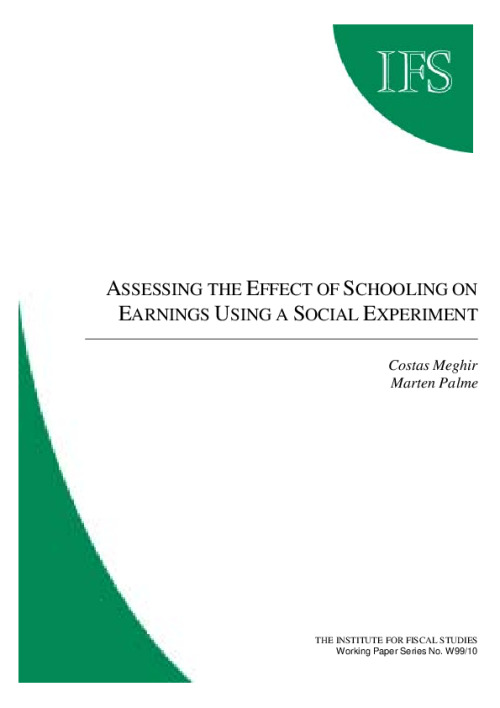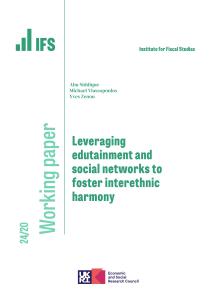The impact of compulsory schooling laws as well as the abolition of early selection by ability remain important issues in the educational debate. These issues were the focus of a major education reform in Sweden which was implemented in the 60s. The reform was preceded by a "social experiment" in which only a proportion of municipalities received the new school system. We use survey data linked with Tax records covering 10% of one of the cohorts who were educated during the experimental period, to evaluate the impact of the reform on educational attainment and earnings. We find significant increases in the educational attainment of individuals from poorer backgrounds. We also find that the largest impact on earnings was for higher ability individuals from poorer backgrounds. In addition we estimate the returns to education for those affected by the reform. By exploiting the differential impact of the reform by county we are able, in some cases, to distinguish its direct effect on earnings from the effect it had by increasing the quantity of education. We find that the main source of increased earnings came from increasing educational attainment.










